

Dearest Reader,
Once Upon a Time there was a land infused with stories Those who dared to venture into the wildest of their imaginations introduced fantastical kingdoms, dystopian societies and tales of cursed paintings. Unbeknownst to the people, each story that graced the land was riddled with philosophical inquiry, beginning with existential angst, traversing through aestheticism, to determinism, morality and even exploring the depths of human nature itself.
In this special edition of The Thinker as literature and film lovers ourselves, we have decoded some of the most beloved works of fiction that span centuries of creativity and investigate the underlying philosophical dilemmas that each body of work presents. Whether this be if Harry Potter possessed free will or if The Little Mermaid’s psychological or bodily continuity most comprises her identity, we endeavour to show you that Philosophy is embedded in all areas of our lives, if only one looks carefully. Philosophy isn't always overt; it can be subtle, hidden beneath the surface of a gripping plot or clever dialogue But for those who pay attention, its presence enriches our experience, encouraging us to reflect on our own beliefs and values. So, as the scholarly year comes to a close, we urge you to look for Philosophy in all areas of your life ~ you may find that the majesty of the universe will unravel before your eyes
WarmestWishes,
Antara, Aur�e, Nina, Maya
The Thinker Team
Madnes� an� Moralit� ~ Nin� Freudenhei�
Hamlet is renowned for being one of Shakespeare’s most morally complex plays as it raises questions about morality, mortality and action versus inaction For those who are unfamiliar with the play, the narrative begins after the King of Denmark’s death and the ascension of his brother Claudius to the throne. The previous king’s son Hamlet comes home for the funeral and sees his father’s ghost who reveals that Claudius murdered him and orders Hamlet to avenge him. The subsequent sequence of events shows Hamlet feigning madness, confirming his father’s accusation and Hamlet causing the deaths of five people including Claudius before he too dies Throughout the narrative, Hamlet grapples with whether or not he should kill his uncle and considers his own life’s course of action. This inner struggle is epitomised in the famous soliloquy which begins ‘To be or not to be: that is the question’

This line is celebrated as one of Shakespeare’s finest and represents Hamlet’s doubt of whether it is right to avenge his father if it means killing his uncle. It is also interpreted as Hamlet's contemplation of his own life and his questioning of whether it is better to live or die However, the philosophical consideration of most interest to me has always been whether Hamlet was truly mad. The play as a whole blurs the distinctions between sanity and insanity as while Hamlet claims to feign his madness he is also driven to murder by knowledge that was gained from an apparition: the ghost of his father, which suggests he lacks at least some semblance of sanity. Many scholars also claim that the fact he ends up murdering five different people and indirectly two others suggests he had undoubtedly lost his grasp on reality. His hesitancy to murder Claudius is weaponised in this argument as well as many claim it is indicative of how he was not driven by ambition but rather a lunacy which was occasionally interrupted by bouts of morality Furthermore, Hamlet is portrayed from the beginning of the play as a melancholy character and during the Elizabethan era renaissance doctors viewed melancholy as a condition which could often lead to madness This is a more rational argument as it supports the belief that Hamlet was initially sane and it was his performative expression of insanity which caused him to descend into madness.
Despite these claims, I find it far more logical to conclude that Hamlet retained all of his faculties Hamlet at times lacks reason and is violently vengeful in his grief but perhaps this can
be merely attributed to the melancholy which accompanies grief His experience with the ghost of his father can similarly be explained away by the instability which occurs during bereavement as modern science testifies hallucinations of a deceased loved one are common during a period of mourning As D J Snider - who wrote commentaries on a range of Shakespearean tragedieswrote ‘ a definition of insanity which includes Hamlet would sweep at least three fourths of mankind into the madhouse’ Moreover, to argue that Hamlet’s madness was real underestimates the power of both revenge and ambition For not only is Hamlet attempting to exact revenge, but he is also determined to become King. D.J Snider recognised the potential of this ambition and argued that Hamlet really did ‘counterfeit madness…[as this] was the impression that he was compelled to make upon the world’ and a ‘veil beneath which he could be cunning’. This is a convincing argument as for Hamlet to navigate court politics and be able to kill the King, he had to be strategic in how he presented himself Furthermore, it is Hamlet himself who proclaims his intention to simulate madness as evident when he reveals to two others that he plans to ‘put an antic disposition on ’ Others seem to recognise the performance too as his ‘mad’ comments to Polonius (Claudius’ chief councillor) often appear overtly quick-witted and comedic causing Polonius to even remark ‘How pregnant sometimes his replies are ’ .

Fundamentally, Hamlet brings into question what humans constitute as madness because the majority of humanity can connect with the desire for revenge (in a non-violent sense) and the desertion of reason in moments of grief and overpowering ambition An experience with a phantom many might initially label as a symbol of insanity but when examined further this can be justified as a lucid interval triggered by grief Therefore, perhaps the reason many attempt to impose on Hamlet a characterisation of madness is because it is uncomfortable to consider the alternative. To believe that Hamlet was entirely sane and could be driven to such a murderous extent by emotion alone is a frightening prospect as it suggests man ’ s capacity for moral transgressions Despite Hamlet being a fictional character, Shakespeare is celebrated for his accurate portrayals of the complexity of humanity and Hamlet is the embodiment of this. Both the play and the titular character are riddled with moral violations and it is a testament to Shakespeare’s sagacity that he can capture the zeitgeist of his era and its opinions on madness while also piercing through to the questions and concerns of a modern audience in their struggle to understand the definition of madness Shakespeare unmistakably had an awareness of the thought-provoking nature of madness and Hamlet is as a result representative of the human desire to understand the concept The pervasiveness of this quest for understanding can perhaps best be encapsulated by the author John Russell who wrote ‘sanity calms, but madness is more interesting’.
�� Bo� wh� Live� - Freedo� an� Divinit� ~ Auror� Lebru�
Whilst we are familiar with the spine-tingling tales of Harry Potter and his chase against the dark arts, something which is less touched upon is Harry’s continual battle with control over himself Through Harry’s predestination as the chosen one and Professor Trelawney’s Prophecy, the readers become encapsulated with Harry’s life and soon come to the conclusion he is not in control of his own life, but rather has a greater purpose for the rest of the wizarding world.
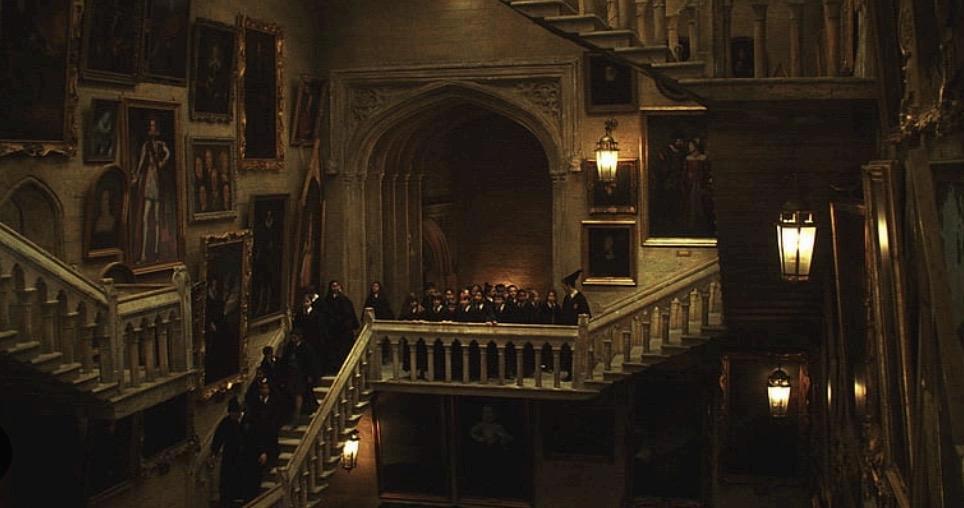
As Harry’s parents are brutally murdered by Lord Voldemort, his mother’s love serves him as protection. Due to this, Harry is thus named the chosen one, the chosen one to defeat the evil in the magical community. One could draw a parallel between this plot and Jesus being the atoning sacrifice. God sent Jesus himself to fix the relationship between God and humans and cleanse the world of original sin and evil This sacrifice is often
named God’s ultimate act of love, thus likening Lily Potter to God in the sense she acted out of love If we continue upon this interpretation then we attribute Harry to messianic qualities as he holds the weight for salvation in the wizarding world. This comparison is furthered as Jesus himself is predestined to do so due to the omnipotence of God, and Harry himself is predestined to save humanity from Voldemort, both of them are simply following their destiny
The idea of predestination is furthered by Harry’s inevitable future as one of Voldemort’s Horcrux Since the beginning of the series, characters such as Snape and Dumbledore have been known for evil and for Voldemort to truly be eradicated, Harry must die as one of the Horcrux. Furthermore, in a particular scene, Harry attempts to obtain a crucial memory from one of his professors, but despite his persistent efforts, he fails to succeed. Eventually, he resolves to use a potion known as Felix felicis, or liquid luck, in order to aid him in securing the memory What unfolds is a captivating narrative depicting Harry's deliberate, conscious, and independent decisions that ultimately lead to the outcome he desires. Although felix felicis itself does not directly intervene, its usage seems to mysteriously oversee the events of the day, orchestrating circumstances in such a way that the individuals' freely chosen actions align with Harry's desired outcome. This thus further alludes to the lack of genuine free will in the novels.
This idea is further exacerbated by the idea that Harry never fails, the same way in which Jesus never fails Throughout the eight books, Harry narrowly misses death in everyone From the Chamber of Secrets to the Battle in the Graveyard, Harry is physically incapable of death. This
thus supports the idea that Harry is not an ordinary human being and thus his failure is impossible, rather he is a divine figure sent for redemption
However, in The Deathly Hallows, Harry faces a significant decision: he chooses to accept his fate and allow himself to die without resistance. This choice is deliberate and made with full awareness of the consequences Despite having the power to thwart Voldemort's plans and ensure his survival, Harry opts for death, demonstrating his agency and free will This decision is considered one of the most profound moments in Harry's life. This could be countered by drawing the parallel to Jesus who knowingly went to Gethsemane even though he was to be arrested and crucified. It could simply be concluded that this final act of selflessness is part of predestination and their fate
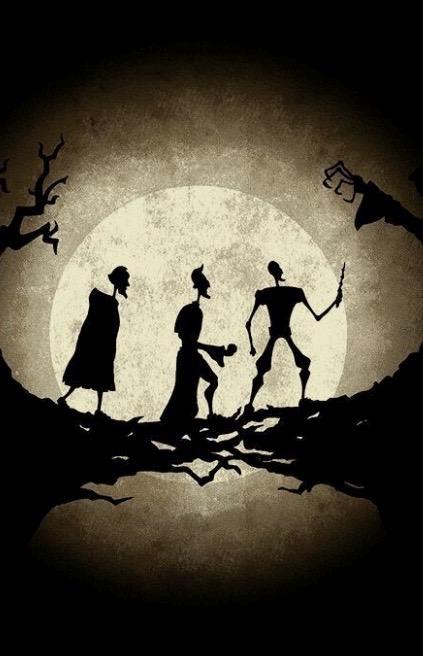
In conclusion, Harry’s course of life and thus death are predetermined. It becomes increasingly clear to the reader that Harry’s actions are minimised and have little value unless they fit within his final destiny An example of this is his incapability of failure, no matter how desolate or impossible the situation at hand is, he never fails. This omnipotence is henceforth associated with the divine, allowing the reader to see the complexities between the intertwining of Jesus and God with Harry and Lily Potter’s act of love.
�� Intricat� Danc� betwee� Lov� an� Evi� ~ Leil� Asfalo�
In Mafi's dystopian novel, the interplay between love and evil is reminiscent of Plato's exploration of the dual nature of the human soul in "Phaedrus" and "The Symposium." Plato contends that love (or Eros) can elevate the soul towards the divine, fostering virtue and wisdom In contrast, when misguided, it can lead to selfishness and moral corruption

Love, as depicted in "Shatter Me," possesses the extraordinary ability to transform characters. Juliette, the protagonist, evolves from a vulnerable, isolated individual to a courageous and resilient young woman under the influence of love. When she connects with Adam, their love provides Juliette with a sense of purpose and strength, empowering her to confront and overcome the evil forces that threaten their world Through this transformation, we witness the positive impact of love on battling evil. Initially, Juliette embodies a state of weakness and isolation, similar to Plato's depiction of the soul confined by ignorance and desire However, through her love for Adam, she experiences a transformative awakening, gaining courage and purpose similar to the ascent of the soul towards the Good and the True This transformation mirrors the Platonic idea that genuine love has the power to elevate individuals, enabling them to transcend their baser instincts and strive for higher virtues
While love can be transformative, the novel also showcases how love can influence individuals towards evil actions Warner, one of the central antagonists, is driven by his skewed perception of love. His obsessive love for Juliette leads him to commit horrific acts, believing that his actions are justified in the name of love Warner's character serves as a cautionary example, illustrating how misguided or unreciprocated love can manipulate individuals into perpetrating evil deeds.
Throughout "Shatter Me," love challenges societal norms and expectations, blurring the lines between good and evil. Adam, a major character, defies the oppressive regime's definition of love, prioritising his love for Juliette over loyalty to an unjust government Their relationship embodies the idea that love can inspire individuals to challenge the status quo and fight against perceived evil, even if it results in them becoming social outcasts. In this way, love becomes a force that drives individuals to question the moral foundations of society

"Shatter Me" reveals the intricate relationship between love and evil, ultimately displaying their inherent duality within humanity Love can inspire noble intentions and drive positive change, as seen through characters like Adam. However, the novel also highlights the dark side of love, exemplified by Warner's transformation into a villain This duality demonstrates how love alone is not sufficient to guarantee noble actions, as individuals can succumb to their weaker inclinations The complex interplay between love and evil serves as a reminder of the choices individuals must make to remain virtuous.
Through exploring love's influence on evil in "Shatter Me," readers are prompted to engage in self-reflection It encourages an examination of personal motives, intentions, and actions which are influenced by love By recognizing the capacity for both good and evil within ourselves, we can strive to make conscious choices that prioritise empathy and compassion over destructive inclinations. Tahereh Mafi's narrative sparks a deeper understanding of our own potential to influence evil through irrational or misguided interpretations of love. Indeed love possesses the power to transform characters, inspire acts of bravery, and challenge societal norms Simultaneously, it can corrupt individuals and drive them to perpetrate evil actions By fostering a deeper understanding of this intricate connection, we can strive to embody love in its purest form driving positive change and combating the influences that evoke evil.
Tail� wit� � Twis� ~ Antar� Martin�
- “Then your tail wi� divide and shrink until it becomes what �e people on ear� ca� a pair of shapely legs But it wi� hurt; it wi� f�l as if a sharp sw�d slashed �rough you Everyone who s�s you wi� say �at you are �e most graceful human being �ey have ever laid eyes on, f� you wi� k�p your gliding movement and no dancer wi� be able to tread as lightly as you. But every step you take wi� f�l as if you were treading upon knife blades so sharp �at blood must flow I am wi�ing to help you, but are you wi�ing to suffer a� �is?"
Hans Christian Anderson, The Little Mermaid
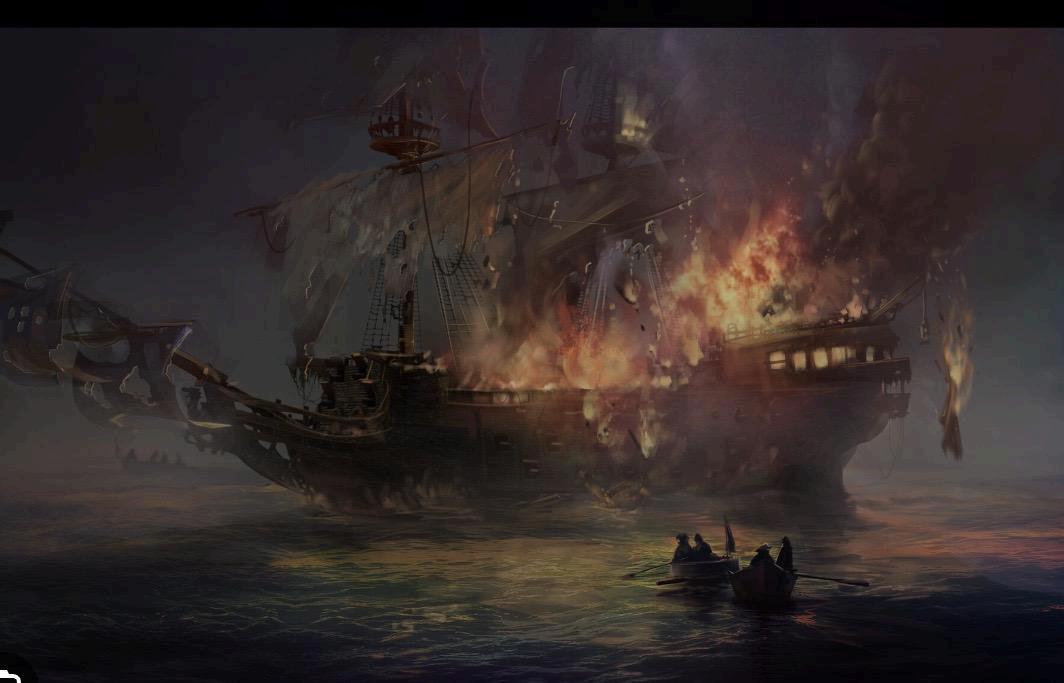
Where secrets become broken promises, and the seven seas bow to a Kingdom long forgotten, a young girl not quite human and not quite beast makes a treacherous choice. The tale of The Little Mermaid, adapted by Walt Disney Animation Studios, follows the story of Ariel, the youngest daughter of King Triton who is inexplicably drawn to exploring the human world. Given the death of her mother at the hands of pirates, her father’s only command is to never break the surface of the ocean where she might
interact with humans - a command which Ariel pays no heed to. As fate would have it, her heart is captured by mortal Prince Eric whom she rescues from drowning in the cold waters of the undersea Motivated by her desire to be with him on land and spite for her father after destroying her collection of mortal objects when discovering her actions, she consults the help of the cunning Sea Witch Ursula Through dark magic, The Little Mermaid sheds her fins for legs and becomes human. Yet she appears to maintain a coherent sense of identity. My love for Disney as well as philosophy inspires me to raise this key question: What constitutes identity the most : the body or the mind?
René Descartes posited the idea of substance dualism, where the mind (res cogitans) is a non-material entity distinct from the material body (res extensa) Through his famous
assertion“cogito ergo sum ” - I think therefore I am - Descartes argued that the mind is the essence of the self and one ' s existence is rooted in one ' s ability to think and to be conscious This idea suggests that the self is fundamentally a thinking, conscious being rather than merely a physical bodyGiven that Ariel retains her rational capacity and self-awareness despite her metamorphosis, her experience suggests that it is the mind, rather than the body, that most profoundly constitutes identity John Locke accentuates this idea, asserting that humans speak of the same oak tree from the sapling to the full-grown tree, though there seems little in common physically between the two. Therefore there must be some continuity that links our infant form to our adult form or in this case Ariel’s mermaid form to her human form: psychological continuity. We are the same person to the extent that we are conscious of our past and future thoughts and actions the same way as of present ones showing us, in his words, that “identity consists: not in the identity of substance, but in the identity of consciousness"
However, for the sake of argument, what if Ariel had developed amnesia during metamorphosis and had no recollection of her mermaid form? Locke’s claim would suggest that she is not the same person as she was before given now she is void of any recollection of her experiences. From an empiricist angle, our experiences are what shape us, develops our personality and cultivates our ambitions. In Ariel’s case, her life as a mermaid, her relationships with other sea creatures, and her motivations for becoming human are all parts of her identity that would be lost with her memory thereby rendering her a different person who would most likely lose the explorative and curious aspects of her personality. Therefore how can we argue psychological continuity is the most fundamental determination of identity?
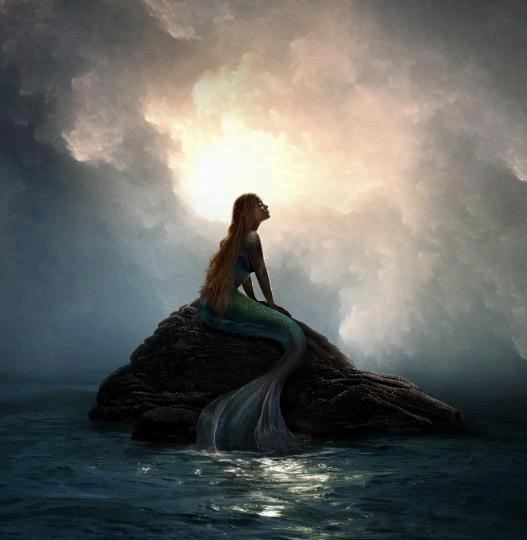
It is crucial to consider that humans (and in Disney’s portrayal, mermaids) are inherently social beings The physical body acts as an anchor for identity, providing a consistent and tangible reference point for others to recognize and relate to an individual over time. You cannot isolate individuals such that their own recognition of their identity is what defines their identity. Humans are by definition social beings meaning that they interact and integrate within society. Therefore, one ’ s identity is largely given to them by other members of a community; as long as there is a form, one is recognised physically, not psychologically, as that is not something we can tangibly see or recognise. Ariel’s aquatic features serve as an anchor for her identity within her underwater world, symbolising her heritage whereas her human transformation replaces these symbols with those more aligned with mortal culture, forcing her to experience the world in a different way to prior, effectively altering her social identity and how others perceive her This emphasises that bodily continuity is fundamental in sustaining a coherent and socially acknowledged identity. The philosophical thought experiment of Theseus’ Ship
accentuates this idea, noting that if over time, the Greek hero replaces each part of his ship with a new one, is it the same ship when he returns? Though perhaps not numerically identical, the ship objectively represents a distinct “ sameness ” to the Ship of Theseus due to the overall appearance of the vessel Perhaps then bodily continuity is the most important factor of our identity.
Yet if we standardise the bodily variable and for a moment imagine that Ariel was an identical twin. We know that two people who are practically identical in genetic and physical makeup cannot and do not share the same identity Because there is something else, something beyond physical appearance that distinguishes us from other people. In the case of identical twins, although they may start with identical genetic and physical foundations, their unique experiences and interactions with the world begin to shape their individual identities from a very early age. As they grow and encounter different environments, people, and challenges, they develop distinct personalities, interests, and perspectives

In Ariel’s unique case, however, this is contingent on her bodily form. It’s her physical anatomy that determines the kind of experiences she has Her mermaid form enables her to navigate the underwater world, interact with sea creatures, and explore oceanic realms inaccessible to humans This form confines her experiences to the aquatic environment, limiting her exposure to human society and its complexities. Upon gaining human legs, Ariel’s physical abilities and interactions shift dramatically She can now walk, dance, and interact with humans, experiencing the terrestrial world’s culture, social dynamics, and physical landscapes. Each bodily form dictates a distinct set of sensory experiences and environmental interactions, influencing her perception and understanding of the world. Therefore, whilst one may conclude for those who are distinctly human, mental continuity is our primary identity make up, Ariel’s enchanted metamorphosis is an infamous outlier wherein the state of her bodily continuity defines her experiences and thus primarily constitutes her identity.
�� �istentia� Ques� for Remembranc� ~ Alic� Peron� - Pacific�
In John Green's "The Fault in Our Stars," the characters grapple with profound existential questions regarding oblivion, mortality, and the human desire for remembrance in the face of inevitable and imminent death The book presents some fundamental questions: does the knowledge that life will be cut short accelerate or extinguish the human drive to be remembered? If existentialism brings life and its possibilities into focus, does early death accentuate our capabilities? Or does an early, unexplainable and certain death encourage a descent into nihilistic apathy?
“The Fault in our Stars” recounts the story of two lovers, Hazel and Augustus, with terminal cancer; how they choose to spend the remaining parts of their lives and what life means to them? It is an excellent book that I highly recommend for anyone with a box of tissues at hand.

It is a fundamental trait of human nature to yearn for immortality by trying to leave a lasting legacy that transcends the bounds of time. Ernest Becker’s "The Denial of Death", explores the concept of mortality and its impact on human behaviour and culture. He suggests that much of human activity, including the pursuit of fame, achievement, and cultural contributions, stems from a deep-seated, inherent fear of death. Early in the book, Hazel articulates and defames this human fear of oblivion
“There will come a time when all of us are dead, there will come a time when there are no human beings remaining to remember that anyone ever existed,” she tells Augustus during their first meeting. “There will be no one left to remember Aristotle or Cleopatra, let alone you... ”
That knowledge that we will die, Memento Mori, is what makes us uniquely human. We attempt to rise above death heroically by embracing a meaningful conception of reality that gives us a sense that we ' re people of value
But, “The Fault in our Stars” throws a wrench in the two protagonists’ ability to give their life meaning, because of the shortness of that life and because of the seeming banality of their death.
In doing so, the book highlights a harsh truth: society has an idyllic, predetermined ideal for those who are worthy of being remembered Deaths are romanticised everywhere Glorified even. We need death to be meaningful - whether it be for sacrifice, for love. But we cannot cope with an unstoppable force like a disease taking people just because it can We like heroes because they fuel our naive faith in our own power; indeed one can go as far as to argue that we can cope with villains because in them we are promised the rise of heroes So surely, heroism is simply a reflex of the terror of death But disease, that’s the one villain we cannot fight: not with strength, not with purpose, not at all... Let’s take the great Greek mythical figure Achilles for example He died early – but in glory Would we remember him if he had died as a helpless, emaciated boy crippled by disease? “The Fault in our Stars” reminds us that our society piles honour only in dying for, not in dying of.
Aestheticis� i� �� Pictur�
of Doria� Gra� ~ May� Erkma�
Throughout the 19th century, significant emphasis and thought was placed on the relationship between aesthetics and morality. The emerging study of physiognomy, which is the practice of assessing a person ' s character or personality from their outer appearance, was a predominant theme in many Victorian novels and a core focus of Wilde’s ‘Picture of Dorian Gray’ More generally, aestheticism describes a doctrine that the principles of beauty are basic to other and especially moral principles The Picture of Dorian Gray is strongly symbolic and accurately reflects the Aesthetic theories regarding the meaning of life in a more hedonistic sense which can only be obtained through the pursuit of pleasure and beauty. Although the novel is frequently interpreted as an explicit declaration of the value of living in line with aesthetic principles, this is partly due to the flourishing Aesthetic Movement of Victorian England at the time of the novel’s publication, the story about the rise and fall of Dorian Gray may alternatively represent an allegory about morality meant to condemn, rather than validate, the submission of an individual to their primate impulses as thoughtlessly and freely as the practice of aestheticism dictates.
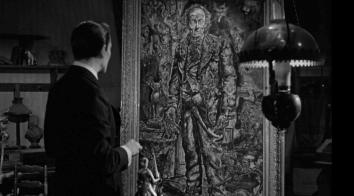
The impact that beauty can have as well as its short lived and temporary nature is introduced by the character of Lord Henry who enlightens Dorian of the extent of his allure. However, Dorian is also made aware of the fact that his once most appreciated characteristic will soon be lost with age and that all of Dorian’s enticing youth is fleeting Lord Henry trumpets the aesthetic lifestyle of excessive indulgence instead of the conventional repressive and virtue oriented Victorian lifestyle. Dorian lives according to what Lord Henry professes without much speculation or hesitation In a frenzied moment, Dorian swears to a portrait of himself that the painting is to age in his place in order for him to eternally maintain his youthful allure This marks the instigation of Dorian’s depraved descent as his sins begin to accumulate from that point forward.
Dorian’s romantic entanglements with the character Sibyl Vane, an aspiring actress, clearly illustrates Dorian’s prioritisation of shallow appearances as he is mostly attracted to Sybil’s enthralling performances The aesthetically inclined Dorian pursues Sibyl from first glance,
intent on acquiring her love before ever attempting to truly know her. Indeed, Dorian’s love for Sibyl is overtly superficial. Following Dorian’s proposal Sibyl becomes utterly captivated by him and loses the ability to feign love for he fellow actors which hinders her acting abilities. Through her abandonment of the stage and spotlight, her purpose in Dorian’s aesthetic life fails and he unceremoniously ditches her The following tragedy of Sibyl’s suicide is a pivotal moment in conveying Dorian’s loss of innocence as rather than mourning the death of a previous lover, Dorian is fascinated by the dramatic intrigue of the incident In his pursuit of his own pleasures, a distinctly narcissistic attitude emerges, and the incompatibility of morality and unconditional aestheticism becomes all the more apparent.

Throughout the novel, Dorian is immortal retaining his good looks despite the flow of time with his self portrait aging and displaying corruption in his stead As Dorian sinks into deeper levels of narcissism, he preserves his external beauty and his portrait degenerates as a substitute This sharply contrasts popular Victorian belief that refined, polished upperclassmen were innately moral as opposed to more rough looking and scrubby workers. Examples of upperclassmen like Lord Henry were presented as hedonistic as shallow and Dorian despite looking angelic wreaked pain among those he encountered. This demonstrates how Wilde played with the presumed correlation existing between the aesthetic appearances and morality However, the only variation of this concept is the painting which serves as a direct symbol of depravity. When Dorian finally destroys the portrait, he faces the force of his sins and his outward appearance mirrors the corrupted depiction of his actions which was reflected by his old, withered and hideous portrait Finally, the portrait is restored to its original ethereal beauty while Dorian lies tainted and dead on the floor This serves as a warning against aestheticism and pure hedonism as it leads to a depraved soul riddled by the guilt of their selfishness.
�� Truma� Show ~ Victori� Artemev�
While browsing through the endless list of Hollywood movies and shows that exist, you may have discovered the philosophical motion picture that is the Truman show, and it may have left you wondering if your life is the Truman show, and if everyone around you are just paid actors In this article, I will be looking at some of the philosophical themes in the Truman show To not get the two confused, I will be referring to the movie the Truman show as such and the show depicted in the movie as ‘the Truman show’.

The Truman show is a movie that is about a main character, Truman, who grows up in a studio that he thinks is ‘the real world’. Within this studio, there are paid actors, who act as his relatives, co-workers, neighbours and more, and everything you would expect in everyday life. He also lives on an island, which is a practical decision that the people running the show made so that he can’t escape easily. His father ‘dies’ while on a boat with him out at sea, he doesn’t actually die since he’s a paid actor, this results in Truman’s fear of the ocean, which leads to him not leaving the island, so he won’t discover the fact that he lives in a studio Another way in which the producers make him scared of leaving the island is through the fact that he works in insurance, and is exposed to the ways in which people die frequently as part of his job. There are also posters in the travel office which show planes getting struck by lightning and other disasters. However, multiple times throughout his life there are indications that something is amiss, like people try to tell him about the fact that he is living in a studio, or something on the set goes malfunctioning An example of this is when he meets his true love, Sylvia, who throughout many encounters tries to tell him the truth, eventually takes him to a beach and attempts to inform him about the real world, when she is stopped and dragged away by her father, saying that Truman is not the first to be brought to the beach and that they are moving to Fiji, which makes Truman want to travel to Fiji. This also leaves Truman thinking about whether what she said was true, and is one of the events that build up his eventual escape from the studio
The Truman show presents many philosophical ideas, one of which deals with ‘is it better to live in a fake but perfect world or a real and harsh world?. This is the main question that the character deals with and that is asked at the end of the movie by Christof, the producer of ‘The Truman show’ This question is dealt with by Truman at the end, when he chooses to live in the real world and step out of the studio By making this decision, he decides that freedom is more important than his fake happiness, created by the perfect world in which he has lived his entire life. This can also remind us of the comment ‘ignorance is bliss’ made by Thomas Gray, since it
shows that being ignorant and believing in the fake world is bliss. However, it also contradicts this idea at the same time by implying that truth is more blissful and happier and more important than ignorant bliss.
In addition, it raises a discussion on Descartes’ philosophy, namely the idea that ‘all external things are merely the delusions of dreams which he, the malicious demon, has devised to ensnare my judgement’. While this idea may be quite different from the Truman show due to the fact that there is no demon in the movie, it actually has a close comparison. The director of ‘The Truman show’, and all the people associated with it could be compared to the demon in Descartes’ philosophy, creating the illusion of the real world for Truman, to make him think that he is living in a perfect ‘real world’ so that the production company can make more money
Lastly, the scenario raises the question: ‘Is this show ethical, and how could so many people in ‘the real world’ allow it?’ The show is designed for normal people in ‘the outside world’ to watch, supposedly calming them, giving them someone to root for, somewhere to escape from their lives, and the belief that they are not alone, and that someone in the world also has similar struggles. As we see in various scenes where we see the audience’s reaction, one of which being when he escapes.
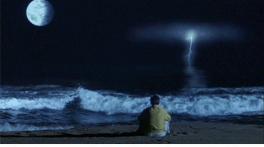
At the end of the movie, Christof says that the reason that the show was created was because people were becoming bored with actors and special effects and wanted something real and authentic
A comparison can be drawn to celebrities and their lives, as well as reality TV The lives of celebrities are extremely popular in the media, and people watching may be seeking a way to escape their lives for a bit, and watch someone else’s Many people also form para social relationships with celebrities, which is what the audience of the show has with Truman This is shown by a few clips where the audience are seen actively rooting for Truman and being happy / sad for him.
Reality TV is sometimes unscripted, and even though people know that a lot of reality TV is scripted, people still watch it for the feeling of reality, thus showing consumer psychology
However, it is also a prison for Truman, with him not having any freedom to do what he wants in his life, and his entire life being controlled by the people running the show. We can see that Truman is being completely exploited for money with everything that happens to him, and he never asked for this to happen, he was just born as Truman
In conclusion, the Truman show raises many ideas on ethics, Descartes’ philosophy, and psychology. It draws comparisons to real life, and whether freedom is more important than fake happiness.
